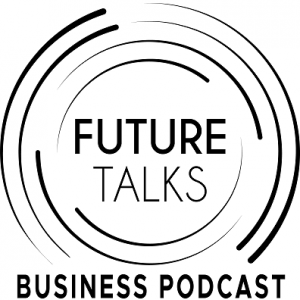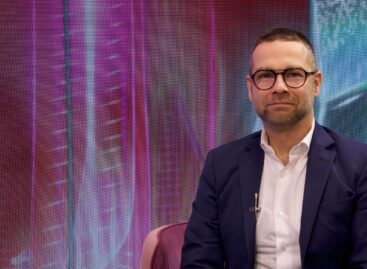Moni Lisa Tibenszky: Teenagers are afraid of insecurity and often experience a feeling of “I am not good enough”
Trade magazin’s Business Podcast continues
Moni Lisa Tibenszky, managing director of the School of Responsible Parents, sports mental coach, life and business coach was Szilvia Krizsó’s guest in the latest episode of the Future Talks podcast. This article features excerpts from their conversation, but you can watch the full interview at futuretalks.hu.

This article is available for reading in Trade magazin 2024/11
– What do you think about the mobile phone ban in Hungarian schools?
– I think kids are less worried about it than the adults. I reckon that smartphones, which form an integral part of kids’ lives in the 21st century, could be used wisely. Digitalisation and the online world cannot be left out of today’s education. On the other hand, taking away the phones can also help children, because it is very difficult to break this addiction. Being off the phone in schools gives them more opportunities to be in the present.

Moni Lisa Tibenszky, managing director of the School of Responsible Parents, sports mental coach, life and business coach
– How can you teach that normal content consumption is a good thing, but if you want to be healthy in the long term and have normal human relationships, you have to put down the phone from time to time?
– Maybe self-awareness can help and there is already so-called digital self-awareness too. It is now much more difficult for adolescents in reality than in virtual space. This started with the isolation during COVID, when social relationships were broken, when everything was practically done on the screen. The style of communication on social media is completely different and the words – sometimes just letters – used there are different from what we expect. Teenagers are less able to express themselves and they measure themselves against how much and what feedback comes from the outside.
– You want to help happy children to live happy lives. When you meet teenagers, what is the biggest fear they express about the future?
– The feelings of insecurity and “I am not good enough”. Parents, the education system, and teachers are all responsible for this. We live under constant pressure to perform. Adolescence is a very sensitive period anyway, when you aren’t happy about yourself and everything is uncertain. Especially if you watch a lot of content – typically unfiltered.
– As a parent, how do you think we need to make progress now, so that we can be there for our children in 5 or even 20 years’ time?
– I would like to quote Professor Vekerdy, whose words are eternal for me: we should only raise children who sometimes struggle like dogs, but who understand: if they reach a point where they can calm down and move on, they will get by. He also believes that only happy parents can raise happy children.

„Good words are almost extinct, we live according to a timetable, under constant pressure to perform”
– Imagine sitting down and talking 20 years from now. What do you think the environment around us will be like?
– I believe in soft skills, a kind of openness and humbleness. We shouldn’t filter reality, but show that there is a place for everyone in it and diversity just helps with that. Volunteering is also a self-help process that includes the flow experience, it is human and value shaping. It is also important to find our own energising source and activity. //
Related news
(HU) Török Dávid: Misszióm, hogy megváltoztassam az ingatlanosok imázsát
🎧 Hallgasd a cikket: Lejátszás Szünet Folytatás Leállítás Nyelv: Auto…
Read more >Related news
KSH: in the fourth quarter of last year, investment performance was 1.3 percent lower than a year earlier
🎧 Hallgasd a cikket: Lejátszás Szünet Folytatás Leállítás Nyelv: Auto…
Read more >









